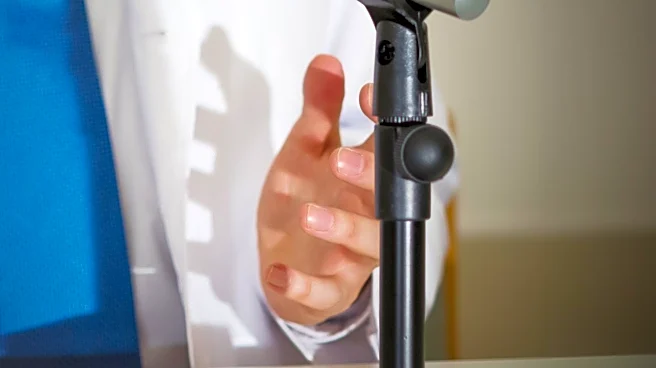What's Happening?
Averto Medical, a clinical-stage medical technology company, has been awarded a $2.1 million grant from the National Institutes of Health (NIH) to study its ColoSeal™ Intraluminal Colonic Diversion System for a new indication in diverticulitis. The company, headquartered in the San Francisco Bay Area, focuses on developing minimally invasive therapeutic approaches for gastrointestinal diseases. The NIH grant aims to validate the scientific merit and clinical potential of extending ColoSeal™ beyond its current applications in colorectal cancer patients. Diverticulitis is a painful inflammatory condition that often requires surgical intervention, and Averto Medical's research seeks to determine if ColoSeal™ can protect the colon without the need for an ostomy, potentially reducing surgical burden and improving patient outcomes.
Why It's Important?
The NIH grant underscores the urgent need for new therapeutic options in diverticulitis, a condition affecting millions worldwide. Averto Medical's ColoSeal™ system offers a less invasive alternative to current surgical practices, which often involve temporary or permanent ostomies. By potentially eliminating the need for such procedures, the system could significantly improve patient quality of life and reduce healthcare costs associated with long recovery times and high morbidity. The grant also positions Averto Medical as a leader in gastrointestinal disease solutions, with the potential to expand its impact across a spectrum of GI diseases.
What's Next?
Averto Medical plans to accelerate clinical research with the NIH grant to explore the efficacy of ColoSeal™ in diverticulitis treatment. The company is conducting multiple clinical trials to evaluate the safety and effectiveness of its system, aiming for regulatory approval and broader clinical use. The results of these studies could lead to a paradigm shift in the treatment of diverticulitis, offering patients better options and potentially transforming care practices.
Beyond the Headlines
The development of minimally invasive therapies like ColoSeal™ highlights a broader trend in medical technology towards reducing surgical invasiveness and improving patient outcomes. Ethical considerations include ensuring equitable access to such advanced treatments and addressing potential disparities in healthcare delivery. Long-term, successful implementation of these therapies could lead to shifts in surgical practices and healthcare policy, emphasizing patient-centered care and cost-effective solutions.








